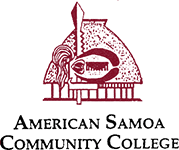American Samoa Community College MOODLE
15 Week Session
This course is a second semester continuation of BIO 250, with intense studies of the structure and function of the human body including gross anatomy, micro anatomy, pathology and pathophysiology. Laboratory session includes exercise on the gross and microscopic anatomy of the human body with special emphasis on the skeleton, muscles, heart, blood vessels, and enzyme actions. (Note: 3 lecture credits; 1 lab credit)
- Teacher: Randel Dewees
This course is a second semester continuation of BIO 250, with intense studies of the structure and function of the human body including gross anatomy, micro anatomy, pathology and pathophysiology. Laboratory session includes exercise on the gross and microscopic anatomy of the human body with special emphasis on the skeleton, muscles, heart, blood vessels, and enzyme actions. (Note: 3 lecture credits; 1 lab credit)
- Teacher: Randel Dewees
MSC 200 is an introductory level course that covers the scope and role of aquaculture for increasing food production of aquatic organisms. The biological principles of aquaculture, including species selection, hatchery breeding and rearing and grow-out practices will be covered, including the status of the
91aquaculture industry in American Samoa. (Note: 3 lecture credits)
- Teacher: Kelley Anderson Tagarino
MSC 280 is an in-depth exercise in experimental learning that gives marine science students the opportunity to participate in supervised research, local internships, or service-learning projects in the community. Credit is based on the extent of work completed and the time involved. (Note: 2 lab credits)
- Teacher: Kelley Anderson Tagarino
